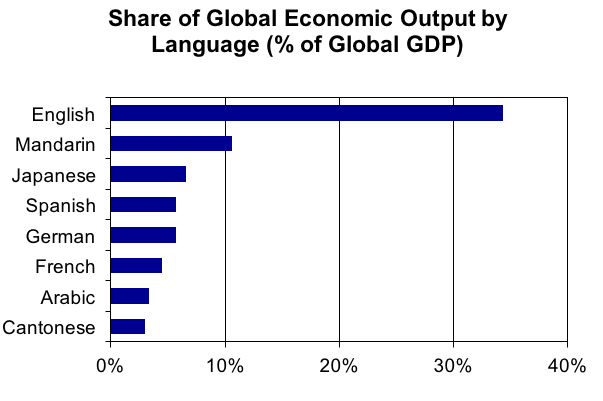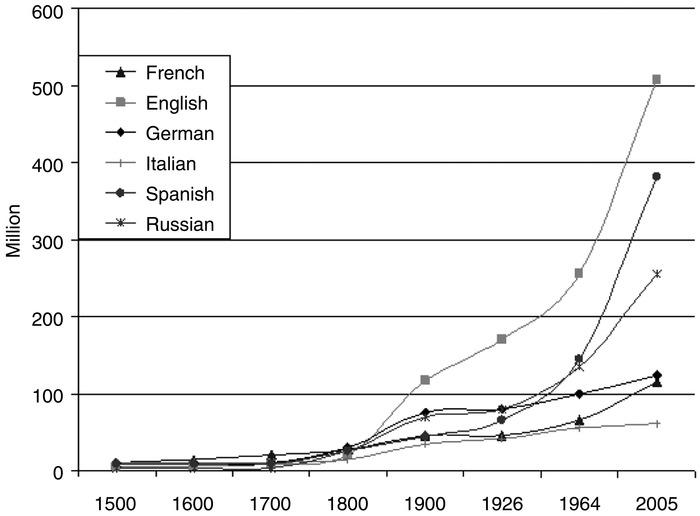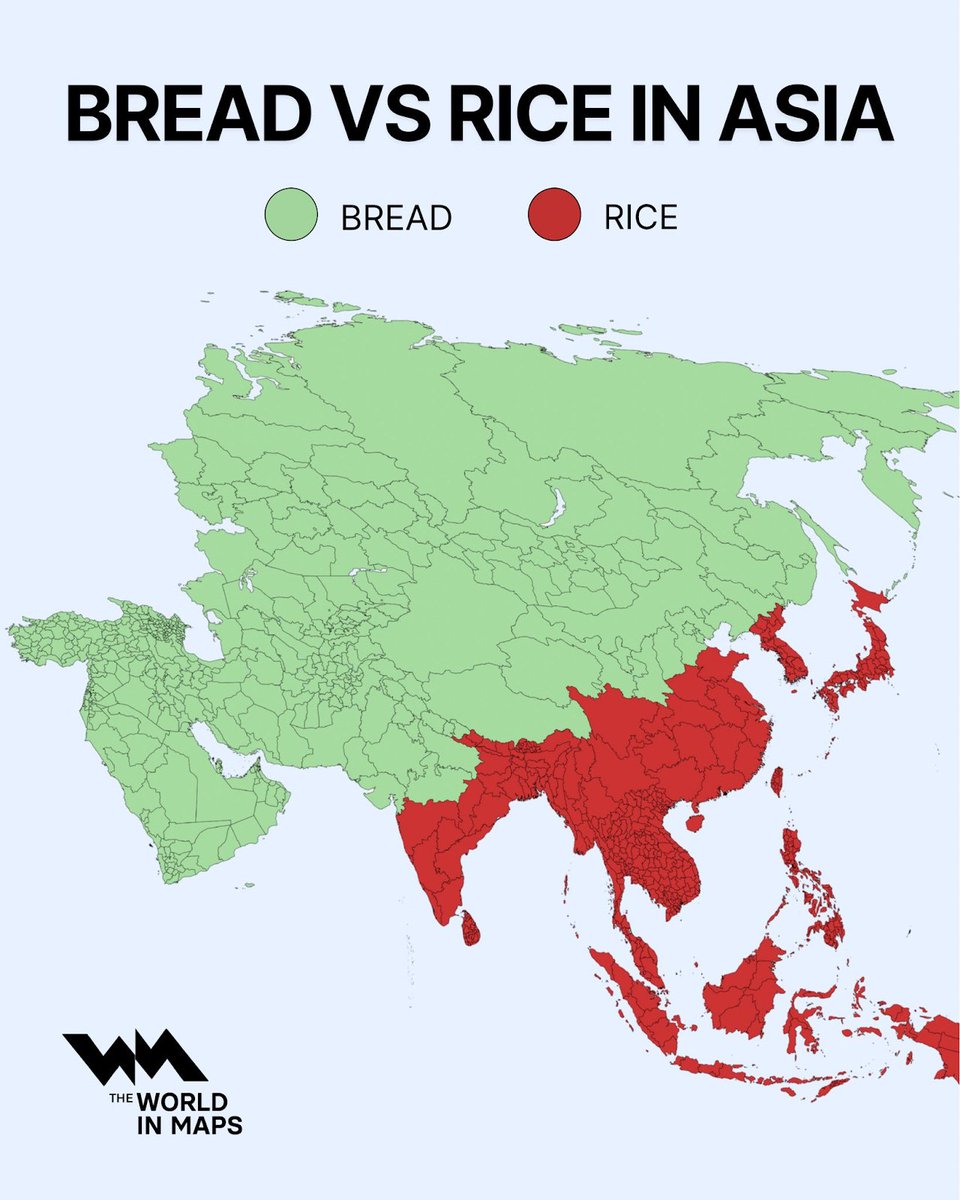A majority of the world will speak English by the end of the century. This will create a new global identity. It will be the triumph of the Anywheres.
Why? Because the same mechanic happened in the past.
Here's what happened and what will happen next 🧵
Why? Because the same mechanic happened in the past.
Here's what happened and what will happen next 🧵
Up to the 1500s, languages were not differentiated like today. In places like Europe, there were vernacular gradients, from Wallonia to Lisbon, from London to Vienna. 

The only ones who did communicate across Europe were the Catholic Church, who could do that because they had a single language, Latin. 

Then came the printing press, printed in the local vernacular of the biggest cities. As more and more ppl read that vernacular, more and more ppl read it.
By the time the 19th and 20th century broadcasting systems appear, that movement accelerates: newspapers, radio, TV, education create one language to rule them all—within a nation-state. 

Let's summarize: the predominant vernacular became the lingua franca of a nation-state, because of network effects: +ppl speak it, so +ppl write in it, so +ppl read it... And this process happened nation-states emerged.
Which is the vernacular that most non-natives are learning, representing this unstoppable force of worldwide language spread? 

So let's summarize:
Printing press ➡️ spreads local vernaculars that become national languages and create national sentiment as a side-effect
Internet ➡️ spreads English that becomes global language and creates a global identity.
Printing press ➡️ spreads local vernaculars that become national languages and create national sentiment as a side-effect
Internet ➡️ spreads English that becomes global language and creates a global identity.
The ranks of the Somewheres will be depleted as they join the Anywheres
economist.com/books-and-arts…
economist.com/books-and-arts…
What it means is:
- Unstoppable spread of English
- More international fraternalism
- Fewer international conflicts (but maybe more fraternal ones, based on ideas rather than geographies)
- More exchange of ideas
- More economic growth
What else?
- Unstoppable spread of English
- More international fraternalism
- Fewer international conflicts (but maybe more fraternal ones, based on ideas rather than geographies)
- More exchange of ideas
- More economic growth
What else?
I go in depth in the rise of English here
unchartedterritories.tomaspueyo.com/p/should-every…
unchartedterritories.tomaspueyo.com/p/should-every…
And in depth in the examples of the printing press and broadcasting media here
Follow and subscribe as I develop these themes. Coming next: how specifically the nation-state will be undermined, the impact of automation, technologies of violence, and more
unchartedterritories.tomaspueyo.com/p/internet-blo…
Follow and subscribe as I develop these themes. Coming next: how specifically the nation-state will be undermined, the impact of automation, technologies of violence, and more
unchartedterritories.tomaspueyo.com/p/internet-blo…
• • •
Missing some Tweet in this thread? You can try to
force a refresh

















